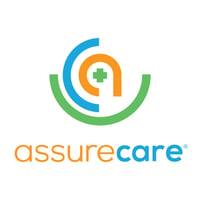
Utilization Management
Verify eligibility, optimize reviews, and streamline appeals and grievances.

Utilization Management
Verify eligibility, optimize reviews, and streamline appeals and grievances.

Care Management
Enable preventative care, manage medical interventions, and efficiently report on program outcomes.

Medication Management
Perform and bill medical services, ensure medications are safe and effective, and identify ways to improve care.

Quality Management
Improve outcomes, lower costs, and adhere to standards, such as HEDIS, Stars, and PQA.

Specialty Pharmacy

Healthcare Technology is on the verge of undergoing a significant transformation. Due to the development of inefficient healthcare databases and unsubstantiated security features, there seems to be an urgent need for portable, secure, and interoperable data flow backed by an improved security system.
The recent introduction and adaptation of Blockchain Technology in different industries have made it clear that Blockchain is the future. Blockchain Technology has the potential to revolutionize the healthcare industry by providing a secure, efficient, and decentralized platform for healthcare data management. It can also help tackle various other issues faced by the healthcare industry, such as data security, interoperability, and data sharing.
The development and use of Blockchain Technology have significantly impacted its popularity in various industries, and now the global healthcare Blockchain market is projected to reach 829 million dollars by 2023, up from 53.9 million dollars in 2018, at a CAGR of 72.8%.
How will Blockchain change the way we manage our health data?
To understand this, we first need to understand the concept of Blockchain. Blockchain is a distributed database that allows multiple parties to share information without a central authority. Due to this structure, no single entity can control or tamper with the data. Moreover, all transactions are transparent and secure, as they are verified by all the participants in the network using cryptographic methods.
Currently, our health data is managed by various centralized entities such as hospitals, insurance companies, and government bodies. This makes it challenging to access our data and increases the chances of data breaches. Blockchain can help solve these problems by providing a decentralized platform for storing and managing health data.
For example, if you were to go to the hospital for a check-up, and the doctor prescribes you medication, the prescription would be entered into the Blockchain network by the hospital. Now, whenever you refill that prescription, the pharmacy would be able to access your medical records via the Blockchain and verify your prescribed medication.
In addition to saving time, this would also reduce the chances of errors. Moreover, since the data is stored on a decentralized network, it would be significantly more difficult for hackers to access and tamper with your medical records.
Blockchain Technology also has the potential to improve interoperability within the healthcare industry. To date, numerous siloed health information systems being utilized are not compatible with each other and there are multiple restrictions on how health data can be shared. This makes it difficult to exchange data between different entities. Blockchain can help solve this issue by providing a standardized platform for health data exchange to tackle the problem of data sharing.
For instance, if a patient is moving from one country to another, their medical records can be stored on the Blockchain and easily accessed by doctors in the new country rather than requiring a manual transfer of records. This would save time and ensure that the patient receives the best care possible.
Blockchain Technology undoubtedly has the potential to revolutionize the healthcare industry. It can provide a secure, efficient, and decentralized platform for healthcare data management, and address the various issues faced by the healthcare industry, such as data security, interoperability, and data sharing. However, due to Blockchain still being in the early stages, certain challenges need to be addressed before the wider adoption of it in healthcare. These include the lack of standardization, scalability issues, regulatory hurdles, the need for a more robust infrastructure, and the high cost of implementation.
Many industries have already begun implementing Blockchain in some capacity. With the potential to transform how we manage our health data, the healthcare industry is a prime candidate to start implementing it as well.
As an integrated application suite, iPatientCare delivers robust healthcare technology; our products and solutions are specially designed for new-age healthcare, which is both cost-effective and timesaving. We continue to develop our technology to meet the evolving needs of the ever-growing healthcare system, including expanding into Blockchain Technology in the near future.
Contact us today to learn more about how our solutions can help you provide excellent care for your patients.

AssureCare
AssureCare® is a leading provider of integrated population care management software for healthcare and human services organizations. For nearly two decades, AssureCare has served the healthcare industry.


Yousuf Ahmad
December 7, 2021

Stay in the know
The latest healthcare insights. Straight from our experts to your inbox.